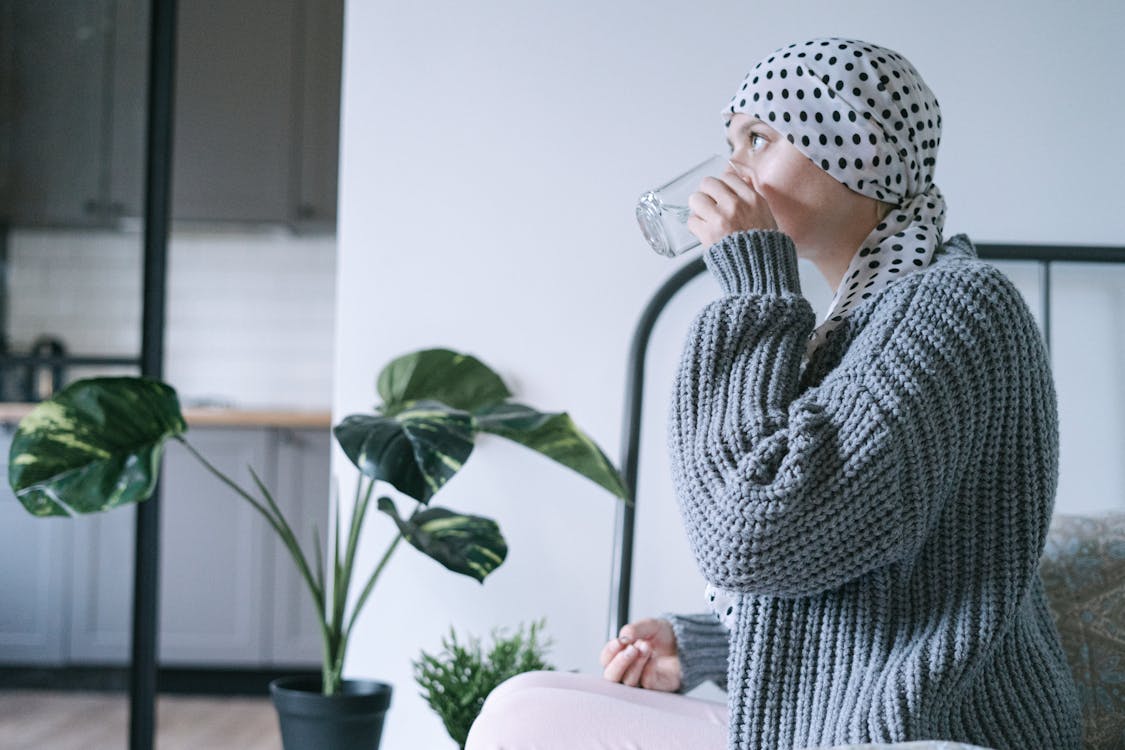AHCC® supplementation resulted in the following observations:
- All patients tolerated AHCC® with no added symptoms
- 20 patients reported feeling better and stronger than before at the time of initiation of chemotherapy cycles
- Almost all patients reported better appetites after they started to take AHCC®
- In 12 patients who required blood transfusions before chemotherapy cycles, a decrease in the rate of fall of hemoglobin was observed and only 3 patients subsequently required blood transfusions prior to chemotherapy
- 22 patients has a reduction of chemotherapy side effects like nausea, vomiting, loose motion/ constipation, etc.
- Tumors regressed in 11 patients
- 8 patients stabilized
The AHCC® group had the following significant differences compared with control group:
- Longer non-recurrence period
- Increased overall survival rate
The self-administration of AHCC® resulted in a dramatic PSA decrease within 1 month, which continued to control his disease for over 6 months from initial supplementation with AHCC®.
Using the national breast cancer patient registration as reference data, this retrospective study reported the improved prognosis of stage IV patients relative to the national average. Since the stage I-III patients at the center all had recurring cancer while the national average includes both recurring and non-recurring cancers, a meaningful comparison could not be made and the results were not statistically significant.
The following results were reported for patients supplemented with AHCC® when compared with control group:
- A significantly prolonged survival
- Quality of life in terms of mental stability, general physical health status and the ability to have normal activities were significantly improved after 3 months of supplementation
- Serum level of albumin and percentage of lymphocytes in blood, were significantly higher
- Slightly increased levels of total IL-12 and neopterin
AHCC® supplementation resulted in the following changes:
- Changes in PSA before and after treatment were substantially stable
- In patients for which expectant management had been continued for 6 months or more before the trial, a prolonged PSA doubling time (PSADT) was seen with AHCC® administration – Prior to AHCC®, 12/31 (39%) of patients had PSADT of 120 months or more, and after 6 months of AHCC® administration, 17/31 (55%) had PSADT of 120 months or more. To the lower end, 12/31 (39%) of patients showed a PSADT less than 24 months, and following 6 months of AHCC®, this fell to 9/31 (29%).
AHCC® supplementation resulted in the following changes compared with the control group:
- The hemoglobin (Hb) level after chemotherapy in AHCC® group was significantly higher
- The taste alteration after chemotherapy in AHCC® group was significantly lower
AHCC supplementation resulted in the following difference in survival rate:
- Improved cumulative 5-year survival rates for patients with gastric cancer (stage IA to stage IIIA) compared with other Japanese institutions
- Improved cumulative 5-year survival rates for patients with colon cancer (stage II to stage IIIA) compared with other Japanese institutions
Supplementation with AHCC® had the following results:
- A significant decline in TAA occurred in 8 out of the 11 patients with different types of malignancies
- PSA levels in prostate cancer patients and CA 125 levels in ovarian cancer patients decreased as early as 1 to 2 months and reached normal levels within 1 to 4 months
- 9 out of 11 patients demonstrated marked increase in NK activity as early as 2 weeks after treatment
- The percentages of patients with complete remission were as follows: (i) prostatic (66%); (ii) ovarian (66%). (iii) multiple myeloma (50%); (iv) breast, 33% complete remission and 2 partial
- In vitro studies showed that AHCC® possesses suppressive effects on tumor cell growth
Compared against the survival rates in American Society of Clinical Oncology (ASCO) reference data, this retrospective study reported the following observations:
- 1-year, 2 year and 3-year survival rates for stage IV lung cancer increased to 77.1%, 54.3% and 31.4%, respectively
- Improvement of 1-year to 3-year survival rates and prolongation of median survival time (MST) for lung cancer stage IV
- QOL scores of 35 cases were rated A to C by 77.2% of patients, which contributed to reducing final hospitalization time
- Survival terms for breast cancer patients for 3 years, 4 years and 5 years were 65.6%, 43.8% and 28.1%, respectively
- Mean survival terms for breast cancer patients were 5 years, 2 months after recurrence and 7 years, 11 months after initial diagnosis
- Extension of survival terms was confirmed
- QOL scores on living cases reported a score of A or B (100%), and scores for those who did not survive were A-B (50%) and C (50%)
Health and functional foods are used by progressive cancer patients who hope increased survival time regardless of ambiguous information that includes phrases used to describe these foods, such as “might be effective against cancer.” However, we fear that non evidence-based foods might shorten the lifetime of patients, whose life has already been shortened by cancer. Although our data is retrospective, AHCC® does not increase the risk of shortening the lifetime of cancer patients, at least in the case of hepatocellular carcinoma. Clinical doctors should neither deny alternative medicine without studying, nor accept alternative medicine easily without critical investigation. Based on scientific, rational data, alternative medicine should be applied.
Group A was given 1-3g/day of modified arabinoxylane with meals. Group B was given 6000 mg/day of coriolus mushroom. Group C was given 4g/day of antigen-infused dialyzable bovine colostrum/whey extract and Group D was given 3-6g/day of active hexose correlated compound (AHCC®). NK cell activities were assessed before treatment and after an average of 16 weeks of therapy. AHCC® was the only supplement that consistently and statistically increased NK cell activity. The average increase was 249%.
AHCC® supplementation resulted in the following observations:
Results from this phase II study demonstrated that AHCC 3 g once daily was effective to support the host immune system to eliminate persistent HPV infections and was well tolerated with no significant adverse side effects reported. The duration of AHCC supplementation required beyond the first negative result needs more evaluation to optimize success for durable outcomes. The suppression of the IFN-β level to less than 20 pg/ml correlated with clearance of HPV infections and merits further evaluation as a clinical tool for monitoring patients with HPV infections.



